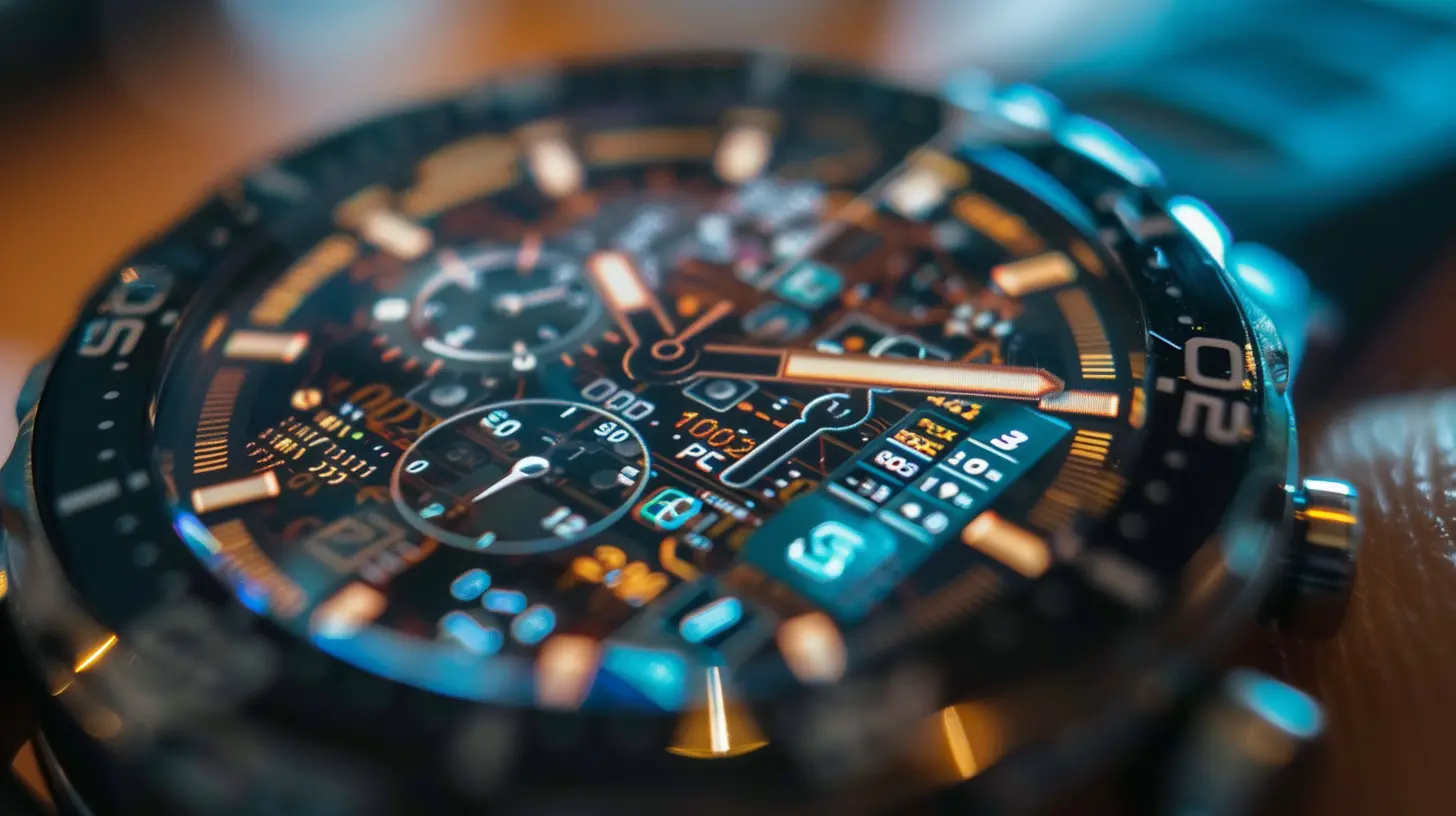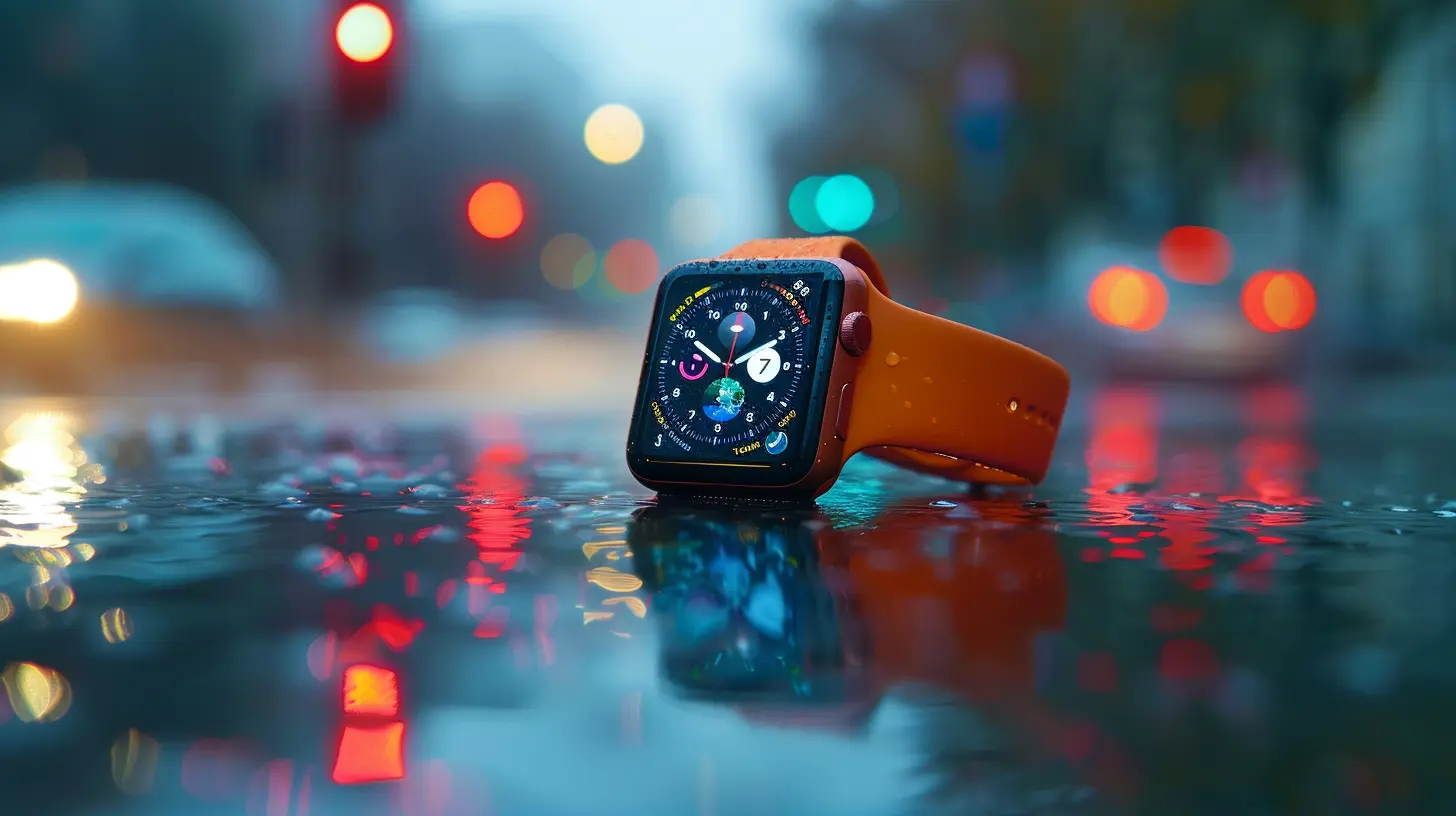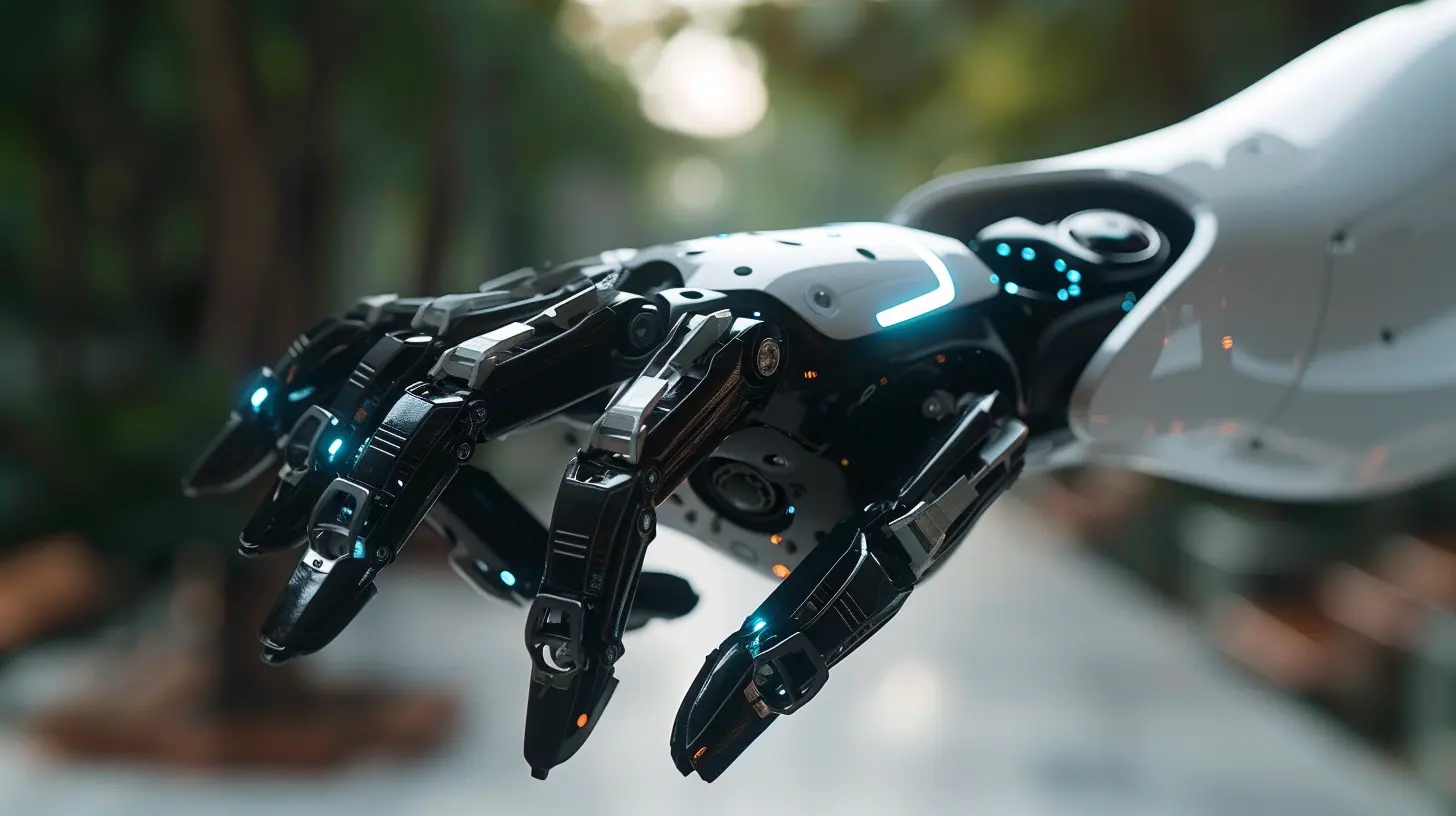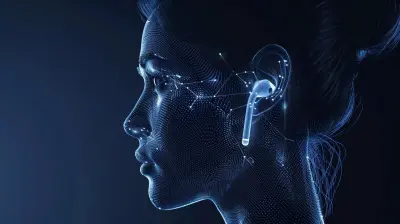How AI is Improving the Speed and Efficiency of Wearable Tech
24 November 2024
Wearable technology has been a game-changer for how we interact with the world around us. From fitness trackers that monitor our heart rate to smartwatches that give us notifications on the go, wearables have become a part of our daily lives. But what if I told you that the future of wearable tech is about to get even more exciting? Yep, you guessed it: Artificial Intelligence (AI) is stepping in to take things up a notch.
AI is no longer just a buzzword. It's a driving force behind many of the advancements we're starting to see in wearable devices. In fact, AI is transforming wearables from convenient gadgets to indispensable companions. But how exactly is AI improving the speed and efficiency of wearable tech? Let’s dig into it!
The Evolution of Wearable Technology
Before diving into AI’s impact, let's take a quick stroll down memory lane. Wearable technology has been around for quite some time. Remember the days of the early pedometers? They were simple devices that counted your steps. Fast forward to today, and we have wearables that can track everything from sleep patterns to blood oxygen levels—and even predict potential health issues before they arise.But as wearables became more advanced, they also became more complex. The demand for faster, smarter, and more efficient devices began to grow. That’s where AI steps in.
How AI Supercharges Wearable Tech
AI and wearable tech are a match made in heaven. Here are some of the ways AI is making wearables faster, more efficient, and, well, just plain cooler.1. Personalized Health Monitoring
One of the most significant ways AI is improving wearables is through personalized health monitoring. We all know that wearables can track basic metrics like steps, heart rate, and calories burned. But AI takes it to another level by analyzing these data points and generating personalized insights.For example, AI can study your daily habits and create a custom fitness plan that’s tailored just for you. It’s like having a personal trainer on your wrist who knows your body better than you do! AI can even predict when you might be at risk of injury or illness and suggest preventive measures. Talk about efficiency!
Real-World Example:
Take Fitbit, for instance. Their devices use AI to monitor heart rates, sleep patterns, and even stress levels. The AI algorithms analyze this data to provide users with suggestions on how to improve their health over time.2. Faster Data Processing
Speed is everything in the world of technology. Nobody wants to wait around for their device to load, especially when it comes to wearables that are supposed to make life easier. AI helps solve this problem by improving the speed at which data is processed.In older wearable devices, data processing was often done in the cloud, meaning the information had to be sent to a server, analyzed, and then sent back to the device. This created delays, especially if there was poor connectivity. But with AI and machine learning, much of the data processing can now be done directly on the device itself.
This is known as "edge computing." By processing data locally, wearable devices can deliver real-time insights without the wait. So the next time you check your smartwatch for your heart rate during a workout, you’ll get the information instantly, thanks to AI.
3. Enhanced Battery Life
Let’s be real: one of the biggest annoyances with wearable devices is battery life. No one likes having to charge their smartwatch every day. But guess what? AI is stepping in to help with that too.AI is being used to optimize how wearables consume power. By learning your usage patterns, AI can intelligently manage battery consumption. For example, if your wearable knows you usually don’t check notifications during your morning run, it can reduce power usage during that time. This translates to your device lasting longer between charges.
Some wearables even use AI to predict when the battery will die and suggest the best time for a charge. It’s like having a superpower that helps you avoid the inconvenience of a dead battery!
4. Improved Accuracy in Tracking
Accuracy is key when it comes to wearables. Whether you're tracking your steps, sleep, or heart rate, you want the data to be as accurate as possible. And AI is making that happen.AI algorithms can sift through mountains of data to identify patterns and provide more accurate tracking. For instance, AI can differentiate between a brisk walk and a slow jog, ensuring that your device is recording the right information. It can also take into account factors like your height, weight, and age to deliver more precise results.
Real-World Example:
Apple’s Watch Series 6 uses AI to track blood oxygen levels, providing incredibly accurate health data. It can even detect irregular heart rhythms and alert users to potential health risks.5. Smarter Voice Assistants
Have you noticed how smart voice assistants like Siri, Alexa, and Google Assistant are becoming more intuitive? That’s AI at work. Now imagine that technology built into your wearable device.AI enables voice assistants on wearables to become more responsive and context-aware. For example, if you ask your smartwatch to "set a reminder," AI can recognize patterns in your behavior and automatically suggest times or locations based on your habits. It’s almost like your device is reading your mind!
Voice assistants powered by AI are also improving in terms of language comprehension and translation. This makes wearables more efficient at executing tasks, whether it’s sending a text, making a call, or controlling smart home devices—all with just your voice.
AI and Wearable Tech in Healthcare
AI’s influence on wearables isn’t just limited to fitness tracking or convenience. It’s also making waves in the healthcare industry. Wearables equipped with AI are helping both patients and healthcare providers monitor health in real-time and detect issues before they become serious.1. Remote Patient Monitoring
With the help of AI, wearable devices can now monitor patients remotely. This is especially useful for individuals with chronic conditions like diabetes or heart disease. Imagine wearing a smartwatch that can alert your doctor the moment it detects an abnormal heart rhythm or a dangerous spike in blood sugar levels.This kind of remote monitoring is revolutionizing healthcare by reducing the need for frequent doctor visits and allowing for quicker interventions.
2. Predictive Healthcare
AI-powered wearables can also predict future health problems based on historical data. For example, if your wearable notices that you’ve had an elevated heart rate for several days in a row, it can suggest that you take it easy and perhaps see a doctor. This predictive capability is incredibly valuable for early detection of health issues, potentially saving lives in the process.Real-World Example:
The Oura Ring, a smart wearable ring, uses AI to monitor sleep and body temperature to predict illnesses like the flu or even COVID-19 before symptoms fully appear.
The Future: Where AI and Wearable Tech are Heading
The marriage between AI and wearable tech is still in its early stages, but the future looks incredibly promising. Some of the advancements we can expect include:1. AI-Driven Diagnostics
In the near future, wearables may be able to diagnose conditions in real-time. Imagine having a device that could detect early signs of skin cancer by analyzing changes in your skin or a wearable that could monitor your mental health by analyzing your speech patterns and tone of voice.2. AI-Powered Customization
As AI continues to advance, wearables will become even more personalized. Devices will learn from your habits and preferences to offer suggestions tailored specifically to you—whether it’s adjusting your workout routine or managing your stress levels.3. Integration with Augmented Reality (AR)
AI is also expected to play a significant role in the integration of AR with wearable tech. Imagine wearing glasses that not only display information but also use AI to analyze your environment and offer real-time suggestions. Whether it’s helping you navigate a new city or assisting in complex tasks at work, AI-powered AR wearables could become the ultimate tool for productivity.Conclusion
AI is revolutionizing wearable tech in ways we could never have imagined just a few years ago. From faster data processing to more personalized health monitoring, AI is enhancing the speed, efficiency, and capabilities of wearable devices. Whether you’re a fitness enthusiast, a health-conscious individual, or simply someone who loves gadgets, the combination of AI and wearables is bringing us closer to a more connected, intelligent future.So the next time you glance at your smartwatch, remember: there's a lot more going on behind the scenes than meets the eye, and AI is the driving force behind it all.
all images in this post were generated using AI tools
Category:
Technology InnovationAuthor:

Adeline Taylor
Discussion
rate this article
18 comments
Elise McKibben
This article highlights how AI optimizes wearable tech by enhancing real-time data processing, personalizing user experiences, and improving battery life, ultimately leading to more efficient health and fitness tracking.
March 14, 2025 at 8:22 PM

Adeline Taylor
Thank you for your insightful comment! I'm glad you found the article's focus on AI's impact on wearable tech enlightening.
Joel McGrady
Great insights! It's fascinating to see how AI is revolutionizing wearable tech for enhanced performance and user experience.
February 22, 2025 at 6:00 AM

Adeline Taylor
Thank you! I'm glad you found the insights intriguing—AI truly is transforming wearable tech!
Reece McQuade
This article beautifully highlights how AI transforms wearable tech, making our lives easier and more connected. Truly inspiring advancements!
February 8, 2025 at 8:15 PM

Adeline Taylor
Thank you! I'm glad you found the article inspiring. AI is indeed revolutionizing wearable tech in remarkable ways!
Naya Kearns
Awesome insights! AI is truly transforming wearable tech, making our lives easier and more connected. Exciting times ahead!
January 29, 2025 at 12:41 PM

Adeline Taylor
Thank you! I'm glad you found the insights valuable. Indeed, the future of wearable tech with AI is incredibly promising!
Clara Elliott
Exciting advancements in AI are revolutionizing wearable tech by enhancing performance and responsiveness, making devices smarter and more efficient for users in everyday life.
January 23, 2025 at 3:49 AM

Adeline Taylor
Thank you for your insights! Indeed, AI's role in wearable tech is transforming user experience and functionality in remarkable ways.
Rayna McLaury
This article insightfully highlights how AI enhances wearable tech by optimizing data processing and user interaction. The integration of AI not only boosts performance but also personalizes user experience, paving the way for smarter, more intuitive devices.
January 14, 2025 at 11:31 AM

Adeline Taylor
Thank you for your thoughtful comment! I'm glad you found the article insightful in showcasing AI's role in enhancing performance and personalization in wearable tech.
Wilder Jones
It's inspiring to see how AI enhances wearable tech, making our lives easier and more connected. Exciting times ahead!
January 3, 2025 at 8:10 PM

Adeline Taylor
Thank you! It’s indeed an exciting era for wearable tech, and AI is at the forefront of driving innovation and connectivity.
Zelda Jimenez
In a world where time is of the essence, AI is revolutionizing wearable tech by enhancing speed and efficiency like never before. This leap not only empowers users with real-time insights but also transforms everyday experiences into seamless journeys. Embrace the future—where innovation meets convenience in wearable wonders!
December 26, 2024 at 7:38 PM

Adeline Taylor
Thank you for your insightful comment! I completely agree—AI is indeed reshaping wearable tech, making our lives more efficient and connected. Exciting times ahead!
Fenris McVeigh
AI revolutionizes wearable tech by enhancing data processing, leading to quicker insights and improved user experience.
December 24, 2024 at 12:03 PM

Adeline Taylor
Thank you! Indeed, AI's ability to process data rapidly is transforming wearable tech, providing users with faster insights and a significantly enhanced experience.
Natasha McCord
Exciting times ahead! AI is revolutionizing wearable tech, making our lives faster and more efficient. Embrace these innovations that enhance our daily experiences, empowering us to stay connected and healthy. The future of tech is bright—let’s harness it together!
December 22, 2024 at 12:46 PM

Adeline Taylor
Absolutely! AI is indeed transforming wearable tech, making it smarter and more efficient. Exciting times are ahead as we embrace these innovations for a healthier, more connected future!
Coral McIntosh
AI is revolutionizing wearable tech by enhancing processing speeds and data accuracy, making devices smarter and more efficient, thus improving user experience and health monitoring significantly.
December 18, 2024 at 8:23 PM

Adeline Taylor
Thank you for your insightful comment! Indeed, AI is a game-changer in wearable tech, driving smarter solutions that enhance user experience and health monitoring.
Kalani Clark
Exciting to see how AI supercharges wearables! Can't wait for even smarter gadgets ahead!
December 13, 2024 at 4:05 AM

Adeline Taylor
Thank you! It's indeed an exciting time for wearable tech, and AI is definitely paving the way for smarter, more efficient devices. Stay tuned for what’s coming next!
Giselle Bennett
Exciting times ahead! AI is revolutionizing wearable tech, enhancing our daily lives with unmatched speed and efficiency. Embrace the future of innovation and connectivity!
December 8, 2024 at 3:42 AM

Adeline Taylor
Absolutely! AI's integration into wearable tech is truly transformative, promising to enhance our daily experiences in remarkable ways. Exciting times indeed!
Scout McGehee
Exciting advancements! Can't wait to see how AI transforms wearable tech's capabilities further!
November 29, 2024 at 9:23 PM

Adeline Taylor
Thank you! It's an exciting time for wearable tech, and AI is truly a game changer. Stay tuned for more innovations!
Tempest Williams
Great insights! Excited to see how AI continues to enhance wearable tech, making it more efficient and user-friendly for everyone.
November 25, 2024 at 8:46 PM

Adeline Taylor
Thank you! I'm excited too—AI's potential in wearable tech is indeed transformative!
Thea Weber
This article highlights AI's transformative role in wearable technology, enhancing user experience through real-time data analysis and personalized insights. However, it raises concerns about data privacy and reliance on algorithms. Balancing innovation with ethical considerations will be crucial as we navigate this rapidly evolving landscape.
November 25, 2024 at 4:59 AM

Adeline Taylor
Thank you for your insightful comment! I agree that while AI significantly enhances wearable tech, we must remain vigilant about data privacy and ethical implications as we innovate. Balancing these aspects is essential for sustainable progress.
Soliel Valentine
This article effectively highlights how AI enhances wearable technology by optimizing data processing and user experience, ultimately leading to faster insights and improved functionality for consumers and healthcare providers alike.
November 24, 2024 at 9:32 PM

Adeline Taylor
Thank you for your insightful comment! I'm glad you found the article highlights on AI's impact on wearable technology valuable.
Harper Roberson
AI in wearables: like a caffeinated squirrel, boosting speed and efficiency at every turn!
November 24, 2024 at 1:33 PM

Adeline Taylor
Absolutely! Just like that caffeinated squirrel, AI is revolutionizing wearables, enhancing performance and user experience in exciting ways!
MORE POSTS

The Benefits of Pair Programming for Code Quality

From Blog Posts to Vlogs: The Best Tools for Multi-Format Creators

How Big Data is Driving E-Commerce Innovation

Debugging Demystified: Essential Tools for Every Developer

The Evolution of Electric Vehicles: Beyond Batteries

Exploring the World of Game Development with Unity

Wireless Earbuds That Double as Hearing Aids: A New Era of Innovation

The Importance of Unit Testing in Software Development

Understanding Supervised vs. Unsupervised Learning: Key Differences

Tools That Help You Create a Seamless Content Calendar

The Impact of Low-Code Platforms on the Developer Community